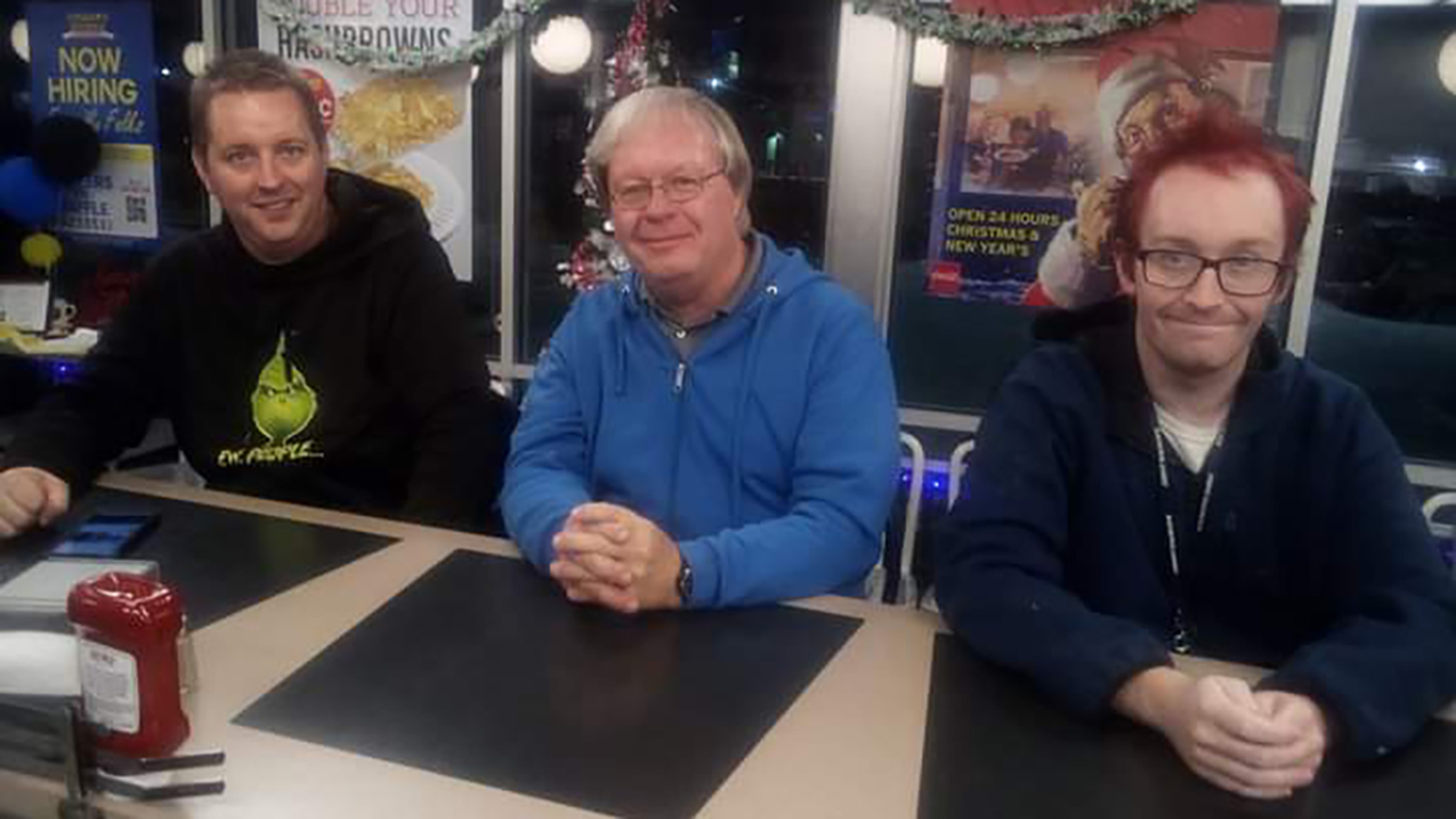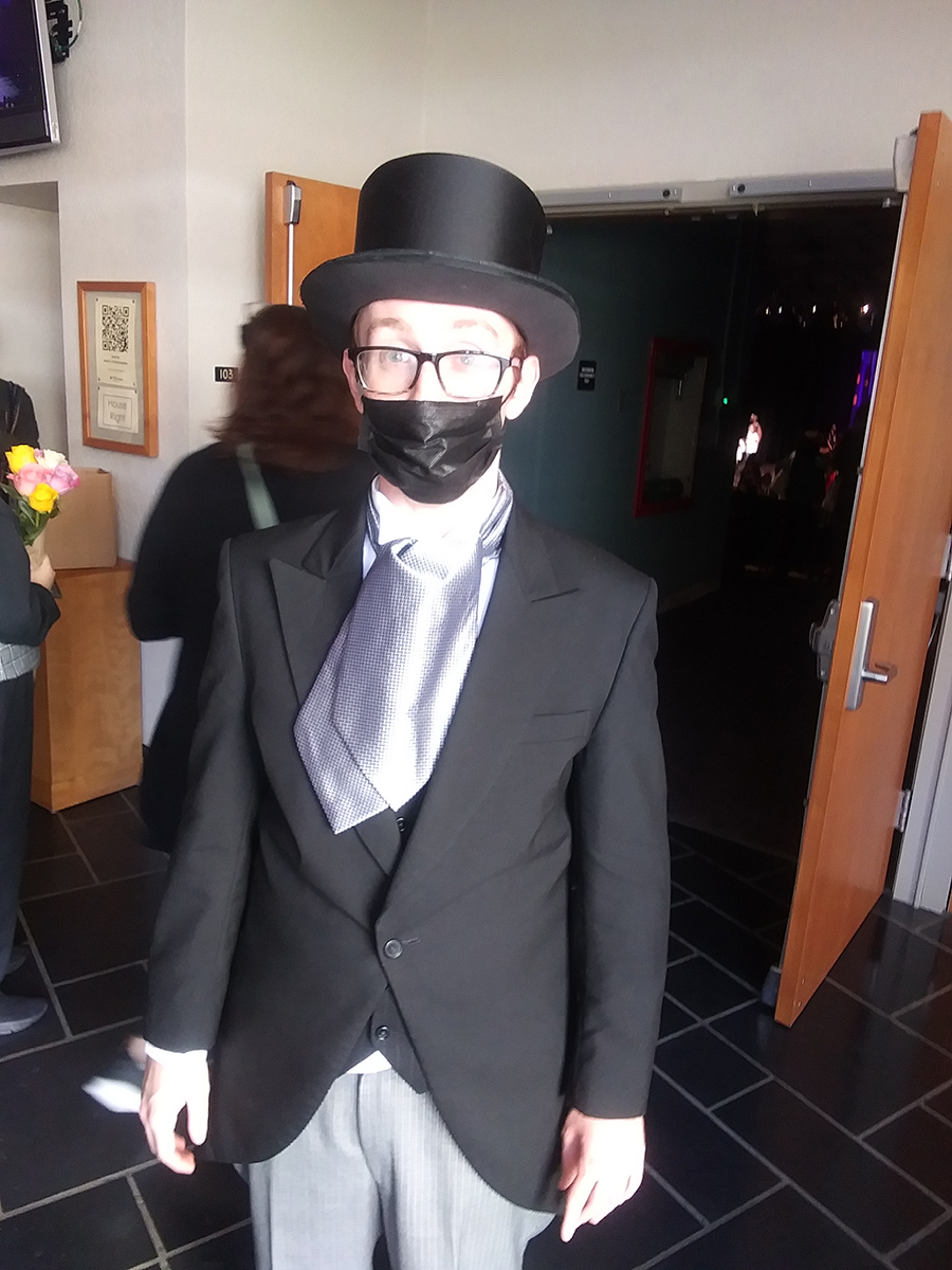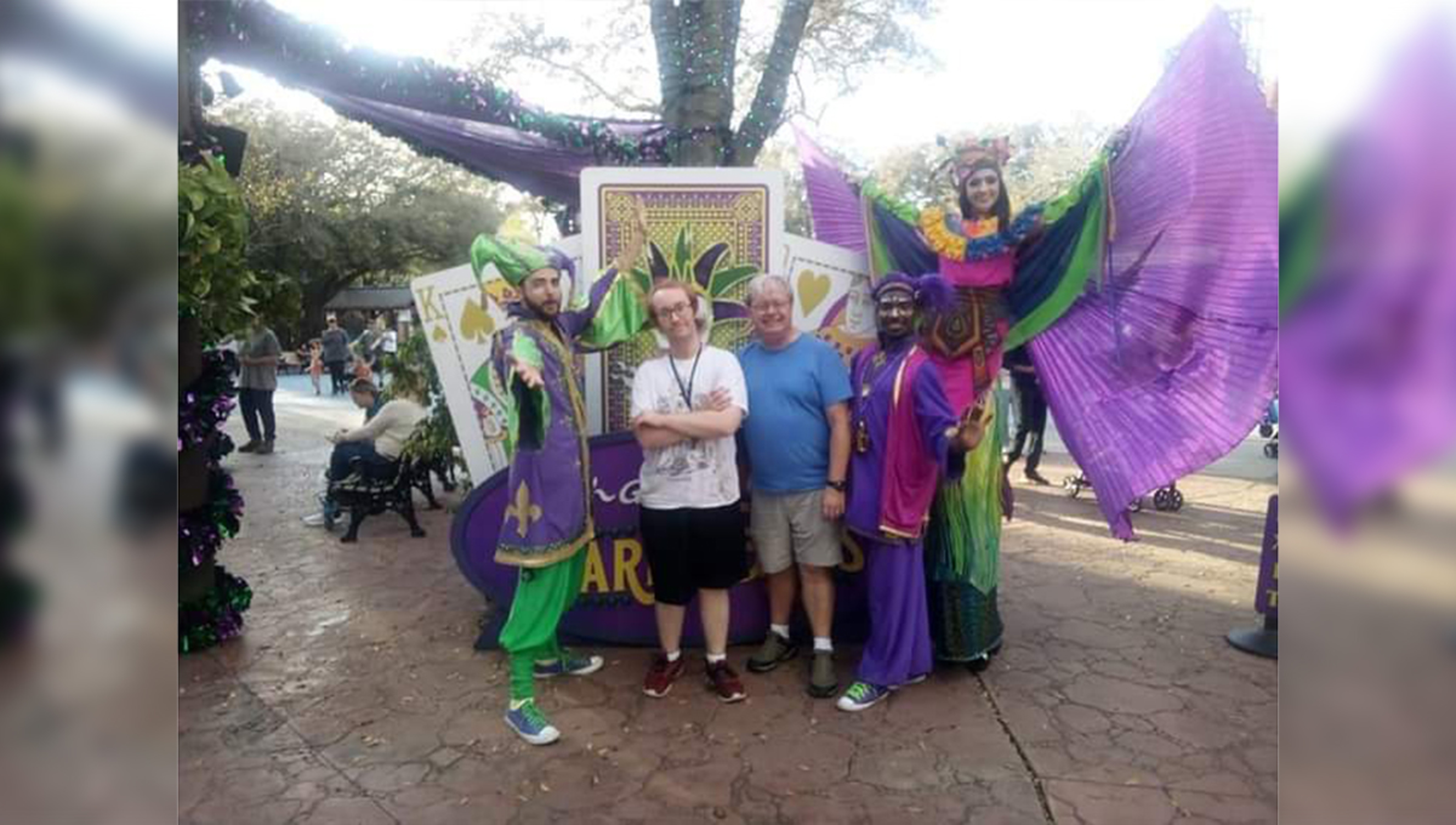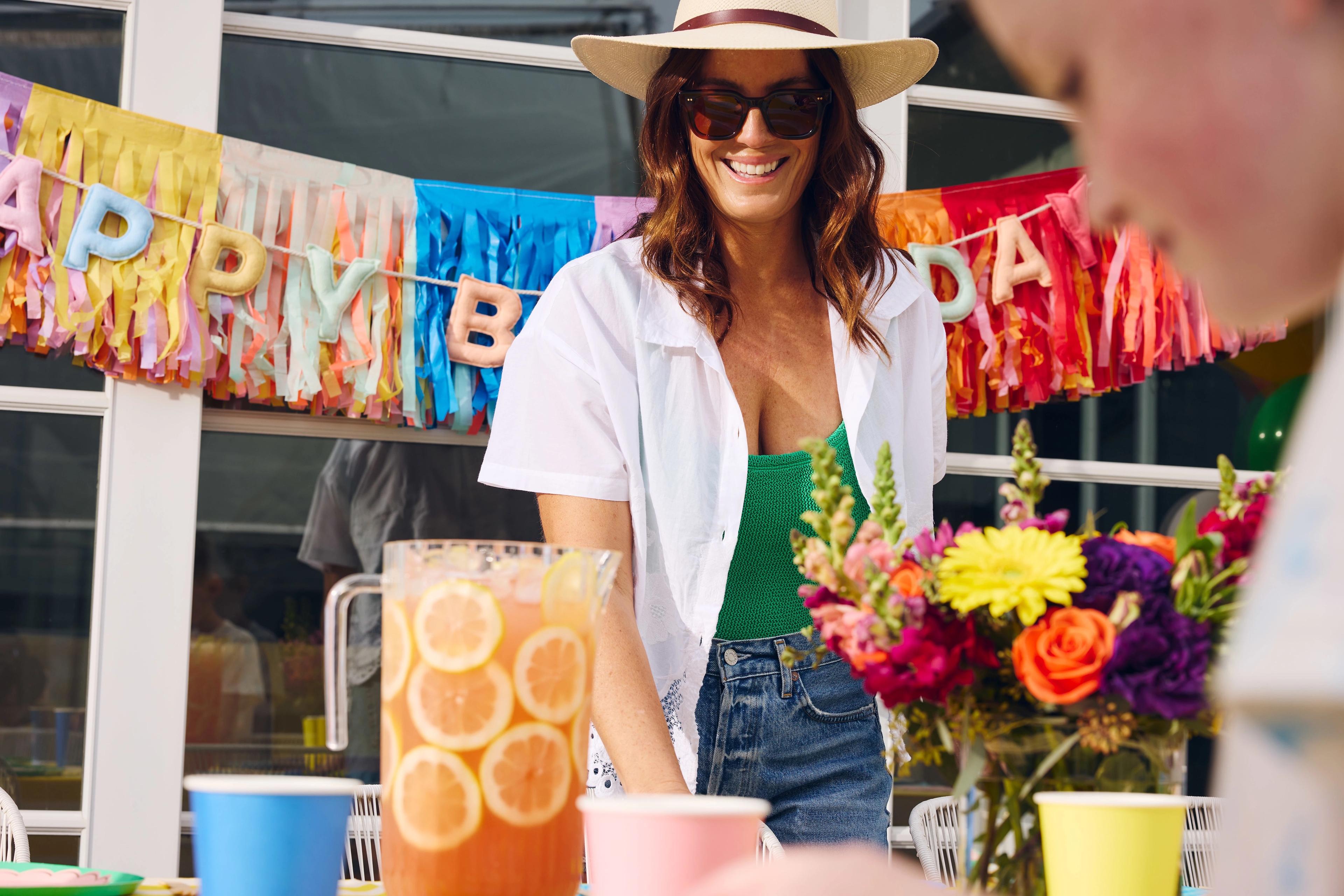Caregiver Stories: Paul Laufer Balances Care for Two Children
One Florida man shares his coast-to-coast journey of protecting his children with autism while encouraging them to blossom.
Mar 14, 2023
The names of the children have been changed for privacy.
When you speak with dedicated caregivers, they often seem surprised you think they're doing something out of the ordinary. Perfect example: Paul Laufer.
Paul and his wife, Missy, live in Sebastian, Florida — 90 miles southeast of Orlando along the Atlantic coast — and they have six grown children. The oldest four are independent and scattered around the United States; the youngest two have autism and need their parents' help.
“My son Charlie is 24. He became aggressive in 2017," Paul explains. During an initial incident the police were called, and an officer filed paperwork that removed Charlie from the family home. He was placed in a mission in Melbourne, Florida, where Paul knew Charlie would not be given a bed.

“He was out on the streets, homeless, and he was bouncing around between three missions," Paul says. “I actually tracked him down in the middle of the night at this church, under an overhang, just trying to stay dry."
The Laufers are proactive, which they stress is a vital part of being a caregiver. “I tried to expedite help for him as soon as I could and actually did really well," Paul explains. “Many disabled people wait many, many years — we were able to get help in a few months."
Not that it was easy. Paul had to get Charlie rooms in different hotels until he could move into a supportive-living facility. “It was very financially draining. And I had to start documenting when he was staying at these hotels and go to see him several times a day, bringing him meals, because he didn't have the capacity to take care of himself." Ironically, when Hurricane Irma hit Florida in 2017, it helped Charlie by freeing up some FEMA funding for accommodation, though a lot of the expense was still out of pocket.
Day-to-day steps
Today Charlie lives in Tampa, about three hours from the Laufers, with a roommate, and he has carers who assist with daily living tasks and transportation to appointments. He's working on getting his GED, and he attends job training at the MacDonald Training Center. Oh, and he's a budding thespian. Charlie discovered that he loves acting through The Penguin Project, a program that assigns mentors to developmentally challenged actors and stages regular performances.
Paul has no illusions about the challenges of being a caregiver, and he's full of admiration for the professionals who help his son and other people with disabilities. “I really do think it takes a special person," he says. “It's like a calling."
He didn't have to look far for a caring role model himself. “I have been inspired by my Uncle Bud, who became a companion for his wife, Rose, who had Alzheimer's," he explains. “He cared for her as long as he could, then had to put her in a nursing home," Paul adds. “But the story did not end there. He was a professional chef at Hasty Pudding Theatrical in Boston. He converted the kitchen at his house into a commercial-type kitchen and until his wife's passing, he baked goods every single day for the staff at the nursing home."
A lifetime of care
Paul thinks of Bud and his devotion to Rose often as he helps Charlie and his sister Susie, 20, navigate life with autism. Paul knows his children will need a lifetime of autistic care. “The last couple of years have been the hardest as they become young adults," he says, and he and Missy have set up guardianships for Charlie and Susie.
“When you have children on the autism spectrum, and when they get to the adult age, you almost have to get guardianship for them, to advocate for them, and to do paperwork," he explains. “Our older children will become their guardians when my wife and I pass," he says, noting how great the older ones are with their younger siblings. “They're very good; I know they have the integrity to watch out for them. They're always on the phone, and whenever we get together, they go out of their way to spend time with them."
With Susie still living at home, holidays are tough to navigate: “Many times we're separated at the holidays," Paul says, explaining that they take turns visiting Charlie in Tampa on those family occasions because six hours in the car is too much for Susie. “It's like you're torn between your daughter and your son, but you know, that's just one of the things we've got to live with."
Embrace surprises

On the plus side, Paul's discovering new things about Susie all the time. “She's extremely smart," he says. “She actually taught herself Japanese and a Native American language!"
He admits that getting her to complete schoolwork is a different story. “That might be almost impossible, but if it's something she wants to do, she'll explore from one end to the other and run with it." She'll also take the initiative and write to companies urging action on issues, and she often gets replies.
“You do spend time with your children, and it can be very wonderful," Paul says. “My daughter is very good friends with this local place, LaPorte Farms. Laura LaPorte runs it, and she is disabled, in a wheelchair." She's encouraged Susie to visit often and to write stories about the animals. The farm runs on donations, and Laura also has a section where you can borrow wheelchairs and other medical equipment at no charge. “She's just one of those amazing types of people," Paul adds.
Paying it forward
The Laufers have forged their own path through the red tape and obstacles to find the help their family needs, and they are quick to share tried-and-true strategies with others who suddenly find themselves beginning a similar journey of caregiving.
First, they say immediately look for a local group that's a community of people with the same concerns, whether it's autistic care, a senior who's developed Alzheimer's, or a person who's losing their vision. “Definitely get involved," Paul says. “That would be one of the wisest things you could do because these people have been through these situations. They can maybe tell you the right type of doctor to go to, recommend a good lawyer, all kinds of different ways to get help."
Paul stresses how many activities there are now for children with autism and their families, from sailing to surfing, horseback riding for therapy, and the theater program Charlie revels in. “It's absolutely amazing! The best of this disabled person comes out — I had no idea my son was going to be able to do acting."
And don't be overprotective, Paul cautions. “While you've got to watch out for somebody who's disabled, we also have to let them blossom in certain areas, you know what I mean? So many disabled people can be somebody great — they have something inside them that they could move forward with if they reached deep inside them."
Are you a family caregiver or know someone who is? Share your story with us and we’ll feature them on The Table. Send an email to celebrationspulse@1800flowers.com.
.svg?q=70&width=384&auto=webp)







